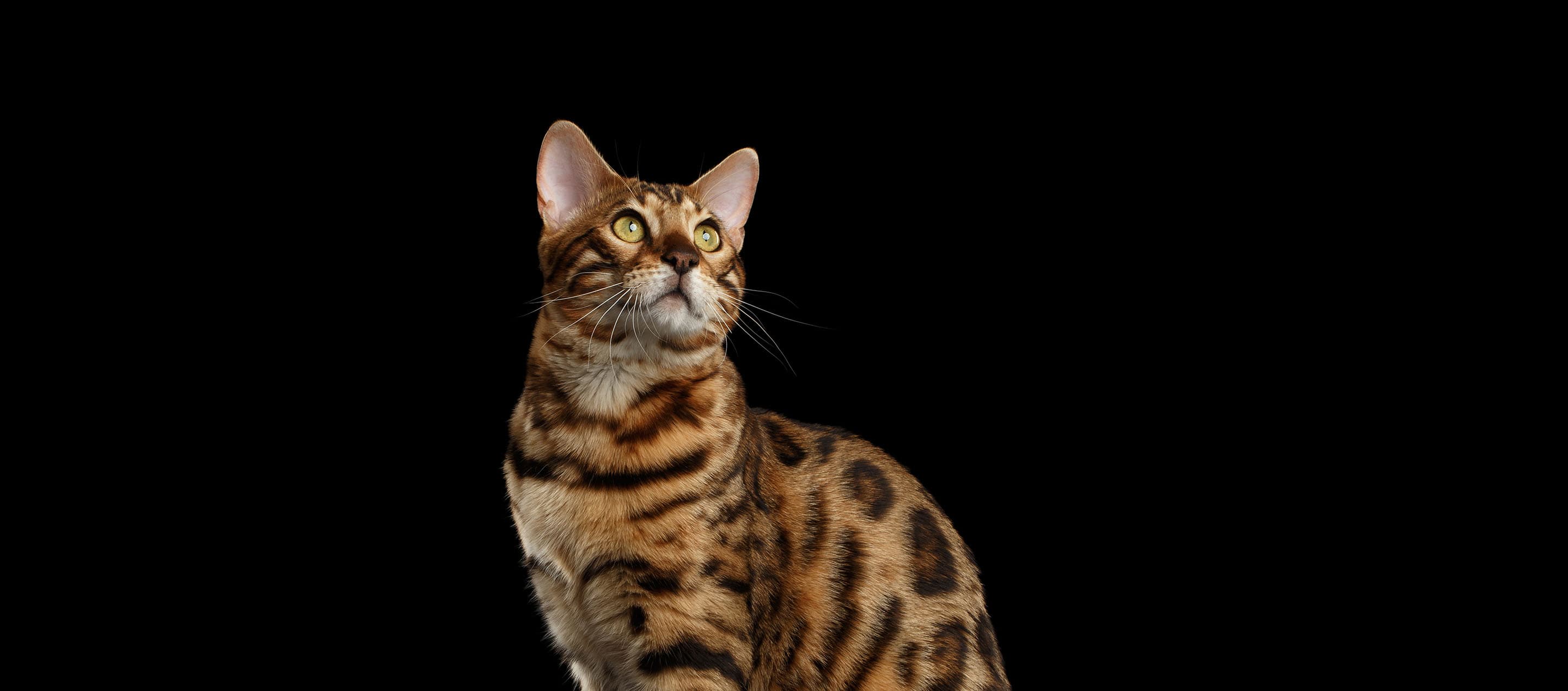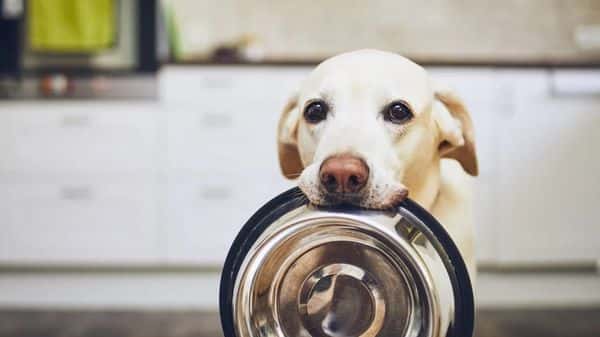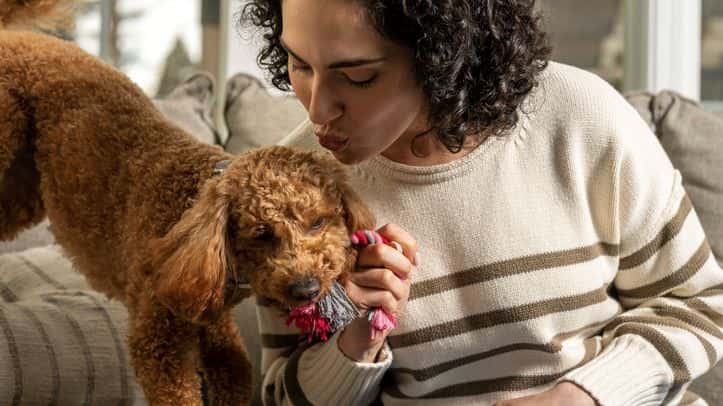
Tips
Wild Cats at Home: A Guide to Understanding and Caring for Hybrid Cat Breeds like Bengal and Savannah - Pros and Cons
8.23.2022
Have you ever seen an adorable photo of a baby Jaguar and wished you could just take the little guy home? You’re not the only one
Wild hybrid cat breeds such as Bengals, Savannahs, and Safaris are created by crossing a domestic cat with a wild feline species. The idea is to create a domestic cat with the loving personality of a typical pet cat plus the beautiful and exotic appearance of a wild animal.
That’s the idea, but the reality is always a little messy. While wild hybrid cat breeds do exist and can be wonderful pets, their heritage does give them unique needs. Wild hybrid cat breeds must be physically exercised, mentally stimulated, and fed a carnivorous diet of real, raw meat — like their not-so-distant wild ancestors.
Wild Hybrid Cat Breeds
Bengal Cat (Asian Leopard Cat x Domestic Cat)
The Asian Leopard Cat is one of the smallest wild cats. Mating an Asian Leopard Cat with a domestic cat (usually an Egyptian Mau) creates the most popular wild hybrid cat breed in the world: the Bengal Cat.
Athletic, energetic, and fiercely intelligent, the Bengal Cat is a fun yet challenging companion. Many domestic cats can be trained, but Bengal Cats especially benefit from training, mental enrichment, and a lot of exercise.
Savannah Cat (Serval x Domestic Cat)
The Serval is a spotty, long-legged wild cat from sub-Saharan Africa. When crossed with a domestic cat (usually a Siamese), the resulting hybrid is a Savannah Cat.
Savannah Cats are one of the most popular wild hybrid cat breeds, second in popularity only to the Bengal Cat. These powerful felines often retain the lean, muscular build and spotted coloration of their Serval ancestor.
Chausie Cat (Jungle Cat x Domestic Cat)
The Jungle Cat is a tawny-colored wild cat species from India and Bangladesh. When crossed with a domestic cat (most commonly an Abyssinian or Oriental Shorthair), the wild hybrid cat breed that results is known as the Chausie Cat.
The Chausie Cat was named in honor of their wild ancestry (the Jungle Cat’s scientific name is Felis chaus). Like Bengal Cats and Savannah Cats, Chausie Cats are intelligent and high-octane felines that need stimulation and daily challenges to solve to stay happy.
Bengal Cats, Savannah Cats, and Chausie Cats are the most common wild hybrid cat breeds to keep as pets.
Do You Really Want a Wild Hybrid Cat?
If you’re interested in adding a Bengal Cat or Savannah Cat to your home and you start searching for one, you’ll quickly notice that these cats are described with an F# prefix. You may see an advertisement for a litter of F6 Bengal kittens for sale or an F4 Savannah Cat up for adoption. So what does that mean, anyway?
The F, in this case, stands for “filial.” It’s a breeder’s term describing how many generations removed a hybrid from the original cross.
For example: When an Asian Leopard Cat and an Egyptian Mau are bred together, their kittens are considered F1 Bengal Cats. These kittens are 50% wild and 50% domestic. If one of those F1 Bengal Cats is eventually bred to another Egyptian Mau, the kittens that result are F2 Bengal Cats. These kittens are 25% wild and 75% domestic. The pattern then continues with F3, F4, and so on.
With each generation, the wild genes from the original Asian Leopard Cat ancestor are more and more diluted. This brings each generation’s appearance and behavior closer to that of a typical domestic cat.
Care and Behavior of Wild Hybrid Cat Breeds
Before you purchase or adopt a wild hybrid cat, it’s critical to know what you are getting into.
Thanks to the influence of their wild ancestor, hybrid cats are more likely than fully domestic cats to spray, urinate outside the litter box, be destructive with furniture and possessions, play too roughly, or have a strong prey drive. Even cats, several generations removed from their wild ancestors, may display some or all of these tendencies.
Adopting a Bengal Cat, Savannah Cat, or other wild hybrid cat breed means making a commitment to spending at least a few hours each day on your kitty’s physical and mental enrichment. These are not cats that are content to simply “do their own thing” day in and day out.
Wild hybrid kitties need puzzles, games, and a variety of mental challenges each day. Old toys become boring quickly, so make sure to spice things up with new toys that are a variety of textures and shapes. Because of their strong prey drive, toys that move in different ways are sure to fascinate your wild hybrid feline. Get some toys that fly, some that wiggle, some that run, and so on.
Wild hybrid cat breeds also need a lot of physical exercise. They benefit greatly from leash training and daily walks, or even a giant cat wheel! Plus, it’s crucial to catify your home with places for your kitty to climb, jump, scratch, and hide. If you don’t provide a sufficiently stimulating environment and enrichment, you risk your wild hybrid cat getting bored and frustrated. An unhappy cat may quickly develop destructive or potentially even dangerous behaviors.
Of course, lovers of breeds like Bengals and Savannahs will tell you they are well worth all the time and effort. These gorgeous cats are intelligent and loving. They learn tricks, are chatty, and often enjoy a good cuddle. Before you rush out and adopt one for yourself based on its beautiful appearance, it’s important to look at your living situation and lifestyle and evaluate if a high-maintenance cat is the right choice for you.
If you do purchase or adopt a wild hybrid cat breed, make sure you are doing all you can to meet their needs both mentally and physically. That means enrichment, exercise, and of course — a nutritious diet of real, fresh meat!
Consider Adopting Over Shopping
Before you buy a wild hybrid cat breed, you should also take into consideration the ethical implications.
Remember that to create these hybrid breeds, truly wild animals like Servals and Asian Leopard Cats must be kept in captivity and bred. The well-being of these wild animals may not be fully considered if profit is the breeder’s sole priority. In many areas, cat hybrids F1 through F3 are still considered too wild to be appropriate domestic pets. However, to produce kittens that are F4 or later and can be sold as pets, wild hybrid cat breeders must keep generations F1 through F3 on hand. The well-being of all these cats must be considered, as well. If they are only used for breeding, they may never receive sufficient exercise, enrichment, or interaction to be physically and mentally well.
Ultimately, the sad truth is that there is very little oversight of cat breeding facilities, even for wild hybrids. “Kitten farms” or “kitten factories” — similar to puppy mills — are all too common, where the breeding cats are kept in inhumane conditions and not given appropriate care.
Therefore, if you do choose to buy a wild hybrid kitten, it’s important that you’re not buying from an inhumane breeder. Ask key questions, like if you can visit your breeder’s facility, how many animals they keep, and how their cats from the earlier generations are treated. If you truly have your heart set on a wild hybrid cat, a great alternative to supporting a potentially unethical breeder is to adopt from a hybrid cat rescue. Many Bengals and other hybrid cats are surrendered yearly by families who underestimated these cats’ unique needs or are otherwise unable to keep them. If you’re confident you would be a responsible hybrid cat guardian, consider rescuing your new best friend instead.
Plus, on a practical level, wild hybrid cat breeds are extremely expensive to purchase from a breeder. Many will cost you several thousand dollars!
Meanwhile, there are perfectly gorgeous, friendly, and intelligent cats waiting for adoption in shelters and rescues across the country. Rescuing means you can still have the cat of your dreams in a way that is not only more ethical but more affordable, too. If you’re interested in bringing a “mini Leopard” into your home, make sure you do your research and choose the breed that’s right for you. Adopt from a rescue if you can, or verify that you aren’t supporting unethical breeding.
If you don’t think you’re in a position to meet the unique needs of a wild hybrid cat, millions of loving cats in shelters across the country may suit you better. Why not adopt an all-black cat and pretend they’re descended from wild Black Panthers?
No matter what kind of kitty you bring home, all cats are united by similar nutritional needs. A protein-rich, high-quality carnivorous diet will fuel your mini Tiger or little Lion’s strong muscles — so Whiskers can stalk and hunt that toy mouse like the apex predator they know they are!
For more information on Vital Essentials and our full product line, follow us on TikTok and Instagram. And if you have any questions, be sure to check out our FAQ page for answers. Together, we can ensure your pet gets the proper nutrition they deserve.



